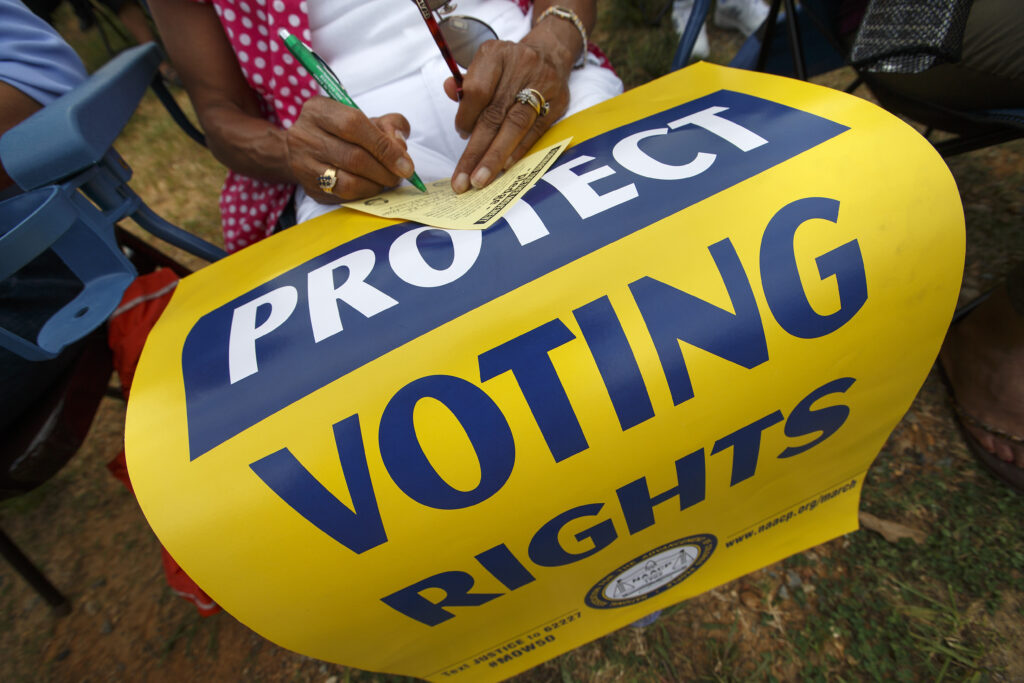New Ruling Cuts Off Key Tool to Protect Minority Voters

A federal appeals court Wednesday cut off a key avenue for private groups and individuals to bring racial discrimination claims under the Voting Rights Act (VRA).
The ruling, which applies in seven states, further weakens the ability of the landmark civil rights law to protect voters, and could lead to the Supreme Court settling the issue.
The 2-1 opinion issued by the 8th U.S. Circuit Court of Appeals stems from a 2022 lawsuit challenging North Dakota’s newest legislative districts. It heavily relied upon a controversial 2023 ruling by the same court, which found that only the U.S. attorney general — not private individuals or groups — can bring lawsuits under Section 2 of the VRA.
Native American tribes — supported by the U.S. Department of Justice — sued over North Dakota’s legislative districts, arguing that Section 1983 of the federal Civil Rights Acts confers a private right of action under Section 2 of the VRA.
But the 8th Circuit rejected that claim, once again delivering a major blow to a key provision of the VRA.
For decades, a provision of Section 2 of the VRA — known as private right of action — allowed private individuals and groups to sue state and local governments over claims of racial discrimination in voting and elections.
“Since 1982, private plaintiffs have brought more than 400 actions based on [Section 2] that have resulted in judicial decisions,” Circuit Judge Steven Colloton, a George W. Bush appointee, wrote in the dissenting opinion. “The majority concludes that all of those cases should have been dismissed because [Section 2] of the Voting Rights Act does not confer a voting right.”
In the lawsuit that led to Wednesday’s ruling, the Turtle Mountain Band of Chippewa Indians, Spirit Lake Tribe and Native American voters argued that the state undermined their representation in the Legislature following the 2020 census.
The lawsuit charged that the state unlawfully “packed” House Subdistrict 9A — located in the northeastern portion of the state — with a supermajority of Native Americans from the Turtle Mountain Tribe, and “cracked” voters from the Spirit Lake Tribe into other districts dominated by white voters.
Though the 8th Circuit’s ruling affects seven states — Arkansas, Iowa, Minnesota, Missouri, Nebraska, North Dakota, and South Dakota — it could have far-reaching implications, should the plaintiffs appeal the case to the U.S. Supreme Court.
That could give SCOTUS the chance to end the private right of action under the VRA nationwide.
“Plaintiffs will now have to decide if they take the risk of going to the Supreme Court, where this ruling could become nationalized if three other Justices join with Gorsuch and Thomas,” the election law scholar Rick Hasen wrote online.